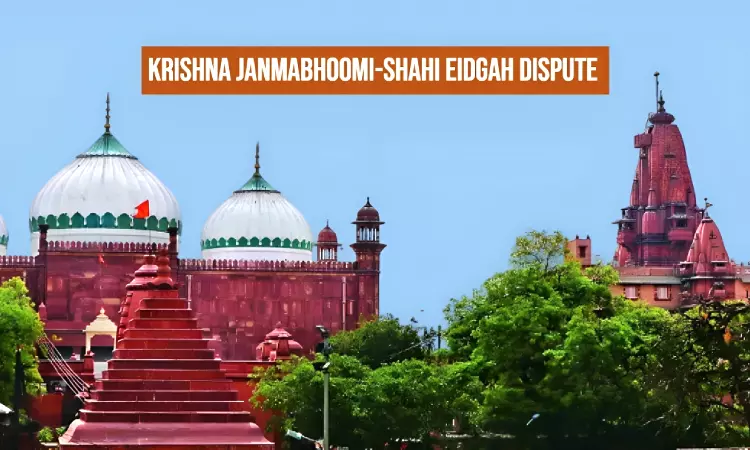- Home
- /
- High Courts
- /
- Allahabad High Court
- /
- Krishna Janmabhumi Dispute:...
Krishna Janmabhumi Dispute: Allahabad HC To Deliver Verdict Tomorrow On Masjid Committee's Challenge To 18 Suits
LIVELAW NEWS NETWORK
31 July 2024 9:34 PM IST
The Allahabad High Court will pronounce its verdict tomorrow on an application filed by Shahi Idgah Masjid (under Order 7 Rule 11 CPC) challenging the maintainability of 18 suits filed by the deity and the Hindu parties concerning Mathura's Sri Krishna Janmabhoomi-Shahi Idgah Masjid dispute.A bench of Justice Mayank Kumar Jain will pronounce its Judgment tomorrow around two months after...
Tags
#Allahabad High Courtkrishnashahi idgah mosqueKrishna Janmabhoomi-Shahi Eidgah Mosque DisputeSri KrishnaJanm Bhumi-Shahi Idgah disputeShahi Eidgah MosqueAllahabad High CourtPlaces of Worship Act 1991Places of Worship ActSpecific Relief Act 1963Limitation Act 1963Krishna Janmabhoomi CaseSri Krishna Janmabhoomi-Shahi Idgah Mosque DisputeSri Krishna Janmabhoomi-Shahi Idgah MosqueSri Krishna Janmabhoomi Dispute#Mathura CourtSri Krishna Janmabhumi DisputeAppointment of CommissionOrder 26 Rule 9 CPCOrder 7 Rule 11 CPC
Next Story



